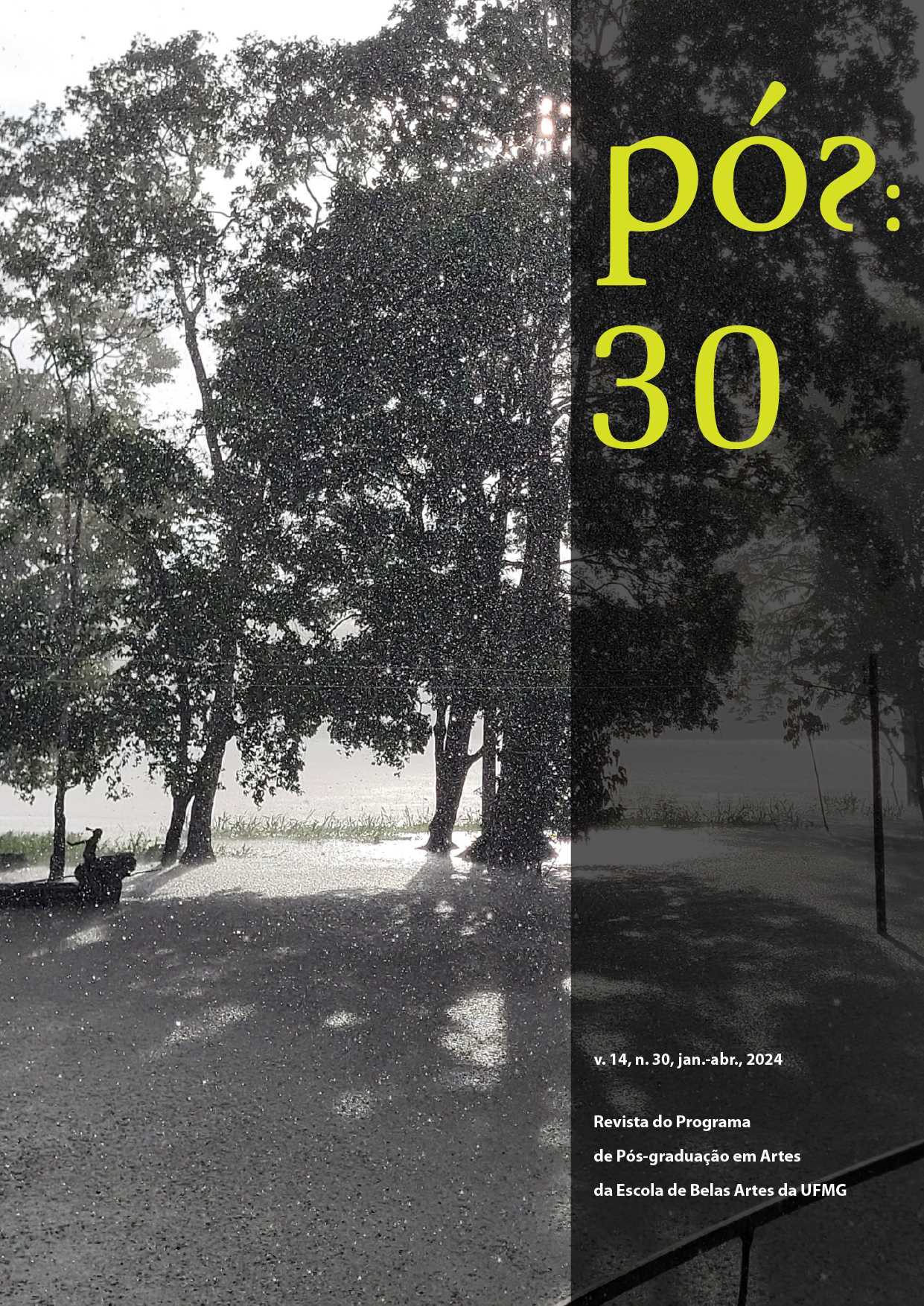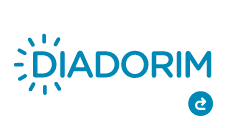Atravesamientos del tiempo en la práctica investigativa
entre la objetividad de los plazos y la subjetividad ralentizada del conocimiento
DOI:
https://doi.org/10.35699/2238-2046.2024.48799Palabras clave:
Tiempo. Investigación. Producción académica. Desaceleración.Resumen
¿Qué temporalidades atraviesan la práctica de la investigación académica? Además de la definición formal de plazos, ¿cuál es la duración de una investigación? Este texto esboza aspectos de la relación entre tiempo y prácticas de investigación, en las intersecciones entre la objetividad de los plazos y la temporalidad ralentizada de los sujetos de investigación. A partir de investigaciones bibliográficas, ancladas en la reflexividad de las actividades de orientación a la investigación, se sugiere la existencia de tres temporalidades en la investigación académica: (1) el contexto de uso social del tiempo dentro de una lógica neoliberal orientada a (2) plazos definidos por universidades y agencias en el que (3) se desarrollan los diversos procedimientos implicados en la investigación. Estos aspectos se discuten desde el lugar de los sujetos en la elaboración del conocimiento.
Descargas
Referencias
ADAM, Barbara. The timescales challenge: engagement with the invisible temporal. In: EDWARDS, Rosalind (Org). Research lives through time. Timescape Working Papers Series no. 1, 2008, pp. 7-12.
ADORNO, T. W. Tempo Livre. In: ___ Palavras e sinais. Petrópolis: Vozes, 2000.
ALVES-MAZZOTTI, A. J. A “revisão da bibliografia” em teses e dissertações. In: BIANCHETTI, L.; MACHADO, A. M. N. A bússola do escrever. 3a. Edição. São Paulo: Cortez, 2012.
BARATA, Rita C. B. Avaliação da produção acadêmica. Avaliação, Vol. 27, no. 3, dez. 2022, pp. 429-445.
BASSO, Cláudia et alli. Organização de tempo e métodos de estudos. Revista Brasileira de Orientação Profissional, Vol. 14, no. 2, jul-dez. 2013, pp. 277-288.
BERGMANN, Werner. The Problem of Time in Sociology: An Overview of the Literature on the State of Theory and Research on `Sociology of Time'. Time & Society, Vol. 8, no. 1, 1992, pp. 81-95.
BOURDIEU, Pierre. O desencantamento do mundo. São Paulo: Perspectiva, 2021.
CARELLI, Maria José Guimarães; SANTOS, Acácia Aparecida Angeli dos. Condições temporais e pessoais de estudo em universitários. Psicologia Escolar Educacional,, v. 2, n. 3, 1998, pp. 265-278.
COHEN, Elizabeth F. The political value of time. Cambridge: CUP, 2018.
COSTA, Ericka L. F. S. Mulher, maternidade e vida acadêmica. Vilhena-RO: UFRO, 2023 (Trabalho de Conclusão de Curso em Administração).
CRARY, Jonathan. O capitalismo tardio e os fins do sono. São Paulo: Ubu, 2021.
DERRIDA, Jacques. Demorar, Maurice Blanchot. Florianópolis : Editora UFSC, 2015.
ELIAS, Norbert. Sobre o tempo. Rio de Janeiro: Jorge Zahar Editor, 2011.
FRANÇA, Vera R. V.; PRADO, José L. A. Comunicação como campo de cruzamentos, entre as estatísticas e o universal vazio. Questões transversais, Vol. 1, no. 2, Jul.-Dez. 2013, pp. 76-82.
FREITAS, M. E. Viva a tese: um guia de sobrevivência. Rio de Janeiro: Ed. FGV, 2001.
HARVEY, David. A condição pós-moderna. São Paulo: Loyola, 1999.
HENRIQUE, C. C.; SIMÕES, D. M. P. A redação de trabalhos acadêmicos. 3a. Edição. Rio de Janeiro: Ed. UERJ, 2004.
HESS, R. Produzir sua obra: o momento da tese. Brasília: Liber Livro, 2005.
HOLFORD-STREVENS, Leofranc. The history of time. Oxford: OUP, 2005.
HOLLIDAY, A. Doing and Writing Qualitative Research. Londres: Sage, 2016.
KUHLMANN Jr., M. Produtivismo acadêmico, publicação em periódicos e qualidade das pesquisas. Cadernos de Pesquisa v.45 n.158 out./dez. 2015, p.838-855.
LEITE, Umbelina R.; TAMAYO, Álvaro; GÜNTHER, Hartmut. Organização do tempo e valores de universitários. Avaliação Psicológica, No. 1, Vol. 1, 2003, pp. 57-66.
MARQUES, Bruna G. Promoção do gerenciamento do tempo em universitários. Seropédica-RJ: UFRRJ, 2019 (Mestrado em Psicologia).
MARTINO, L. M. S. Da teoria à metodologia: um ensaio sobre a construção de projetos em Comunicação. Revista Comunicação Midiática, Vol. 11, no. 2, Ago-Dez. 2016.
MARTINO, Luiz C. Apontamentos epistemológicos sobre a fundação e a fundamentação do campo comunicacional. In: Capparelli, S. et alli. A Comunicação Revisitada. Porto Alegre, Sulina, 2005, pp. 31-45.
MARX, Karl. Grundrisse. São Paulo: Boitempo, 2011.
MEDEIROS, J. B.; TOMASI, C. Redação de Artigos Científicos. São Paulo: Atlas, 2016.
MEIRA, A. C. S. A escrita científica no divã. Porto Alegre: Sulina, 2016.
MOURA, Aline C.; CRUZ, Andreia G. Ensino superior e produtividade acadêmica em tempos de pandemia. Artes de Educar, Vol. 6, no. Especial, jun-out. 2020, pp. 222-244
NYGAARD, L. Writing for Scholars. 2ª Edição. Londres: Sage, 2015.
OLIVEIRA, Thaiane et alli. Editorial: E se os editores de revistas científicas parassem? Contracampo, Vol. 39, no. 2, 2020a, pp. 2-14.
OLIVEIRA, Thaiane. Acabou o quadriênio, e agora? E-Compós, Vol. 23, set-dez, 2020b, pp. 1-17.
PESCUMA, D. e CASTILHO, A. P. F. Trabalho acadêmico: o que é? Como fazer? São Paulo: Olho d’Água, 2002.
PINTO, Maria G. L. C. Os meandros da escrita académica. Alguns recados aos estudantes universitários. Linha D’Água, Vol. 31, no. 1, jan-abr. 2018, pp. 9-27.
RESHEF, N. Writing research reports. In: FRANKFORT-NACHMIAS, C.; NACHMIAS, D. Research methods in the social sciences. Nova York: St. Martin’s Press, 1996, pp. 553-563.
ROSA, Helmut. Aceleração. São Paulo: Unesp, 2018.
ROSS, Alison. Acting Through Inaction: The Distinction Between Leisure and Reverie in Jacques Rancière’s Conception of Emancipation, Journal of French and Francophone Philosophy, Vol XXVII, No 2, 2019, p.76-94.
SANTOS, Elaine M. A aceleração do tempo e o declínio da experiência na contemporaneidade. Impulso, Vol. 28, no. 71, jan-abr. 2018, pp. 95-104.
SILVA, Elizabeth M. Os mistérios que envolvem a escrita acadêmica. In: AGUSTINI, C., and ERNESTO, B. (ORgs) Incursões na escrita acadêmico-universitária. Uberlândia: EDUFU, 2017, pp. 141-152.
SILVA, Larice S.; SILVA, Sílvia M. C. A aprendizagem do ofício de estudante universitário. Psicologia em Revista, Vol. 25, no. 3, dezembro 2019, pp. 960-978.
SILVA, Maria G. R. Labirintos de espaços e tempos no cotidiano universitário. Porto Alegre: PUC-RS, 2008 (Doutorado em Educação).
SILVA, Obdália S. F. Escrita acadêmico-científica. Salvador: UFBA, 2012 (Doutorado em Educação).
SILVEIRA, Letícia. Escrita na universidade. São Carlos/SP: Ufscar, 2021 (Mestrado em Linguística).
SOARES, Adriana B. Et alli. Gestão do tempo: percepções de gerenciamento com estudantes de pós-graduação. Revista Brasileira de Orientação Profissional, Vol. 23, no. 2, jul-dez. 2022, pp. 151-161.
URPIA, Ana M. O.; SAMPAIO, Sonia M. R. Tornar-se mãe no contexto acadêmico. Revista do Centro de Artes, Humaniadades e Letras, Vol. 3, no. 2, 2009, pp. 30-44.
WAJCMAN, Judy. Life in the fast lane? Towards a sociology of technology and time. The British Journal of Sociology, Vol. 59, no. 1, 2008, pp. 59-76.
WAKELING, Simon. Academic communities. Journal of Documentation, vol. 75, no. 1, 2019, pp. 120-139.
ZANDONÁ, Claudiane; Cabral, Fernanda B.; SULZBACH, Cintia C. Produtivismo acadêmico, prazer e sofrimento. Perspectiva, Vol. 38, no 144, dezembro 2014, pp. 121-130.
Descargas
Publicado
Versiones
- 2024-05-13 (4)
- 2024-05-10 (3)
- 2024-05-10 (2)
- 2024-04-01 (1)
Número
Sección
Licencia
Derechos de autor 2024 Luis Mauro Sá Martino, Ângela Cristina Salgueiro Marques

Esta obra está bajo una licencia internacional Creative Commons Atribución-NoComercial 4.0.
Los autores que publican en esta revista aceptan los siguientes términos:
- Los autores conservan los derechos de autor y conceden a la revista el derecho de primera publicación, con el trabajo bajo la Licencia Creative Commons Attribution-NonCommercial 4.0 International License que permite compartir el trabajo con reconocimiento de autoría y publicación inicial en esta revista;
- Los autores pueden celebrar contratos adicionales por separado, para la distribución no exclusiva de la versión del trabajo publicado en esta revista (por ejemplo, publicar en un repositorio institucional o como capítulo de un libro), con reconocimiento de autoría y publicación inicial en esta revista.
- Se permite y anima a los autores a publicar y distribuir su trabajo en línea (por ejemplo, en repositorios institucionales o en su página personal) en cualquier momento antes o durante el proceso editorial, ya que esto puede generar cambios productivos, así como aumentar el impacto y la cita del trabajo publicado.
- Es responsabilidad de los autores obtener permiso escrito para utilizar en sus artículos materiales protegidos por la ley de derechos de autor. La Revista PÓS no se hace responsable de las violaciones de los derechos de autor de sus colaboradores.












